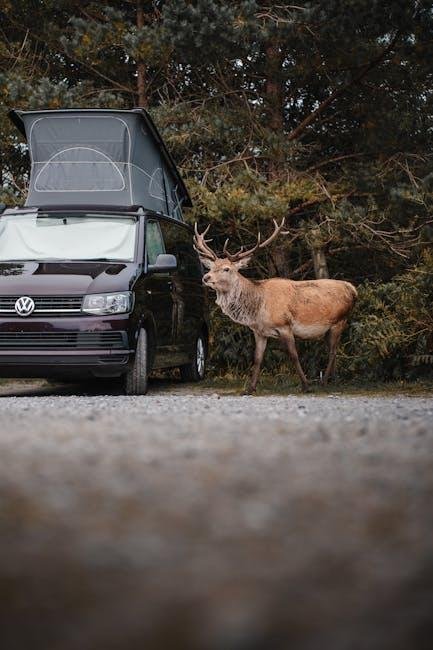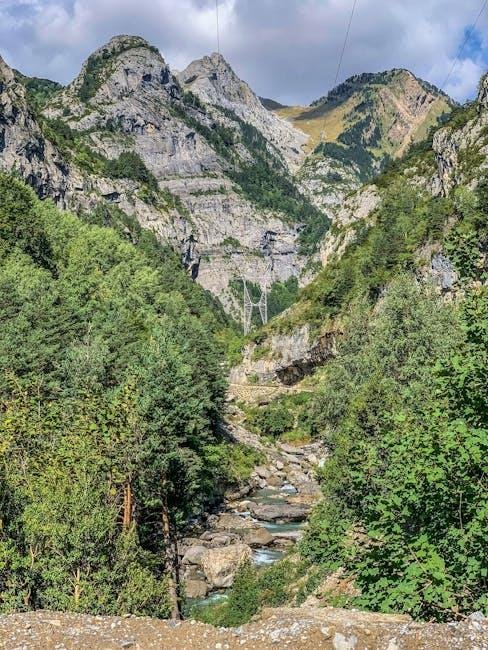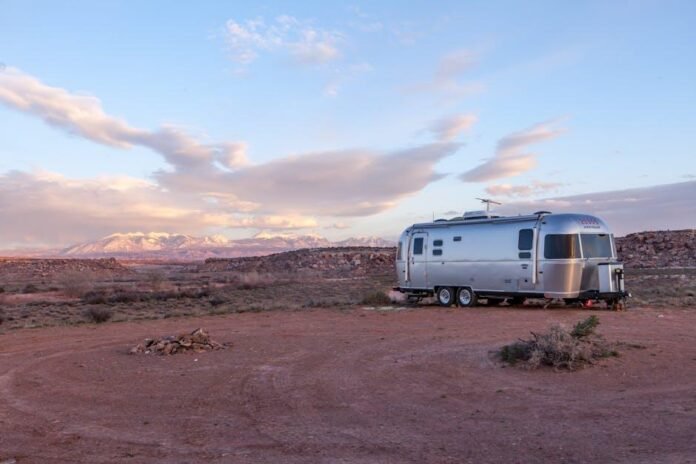RV vs. Car Camping: Which One’s Better?
In teh great expanse of the outdoors, where towering trees sway and mountains stand sentinel, adventure beckons us too break free from the confinements of daily life. Two distinct yet equally alluring modes of exploration have captured the hearts of wanderers: RV camping and car camping. Each method promises unique experiences, comforts, and challenges, inviting enthusiasts to choose their preferred path to nature. But how does one decide between the cozy convenience of an RV and the simplified spontaneity of traditional car camping? In this article, we will delve into the pros and cons of each approach, exploring the intricacies that make RVing and car camping not just modes of travel, but reflections of our personal preferences and camping styles.Join us as we weigh the merits of both and help you determine which outdoor experience might just be your next great adventure.
Exploring the Great Outdoors: The allure of RV vs. Car Camping
For many outdoor enthusiasts, the choice between RV camping and car camping often boils down to personal preferences and lifestyle. RV camping offers the comforts of home, including plush beds, kitchen facilities, and sometimes even bathrooms, allowing families and larger groups to enjoy the great outdoors without sacrificing convenience.With various amenities often included, an RV becomes a portable vacation home that provides the flexibility to travel great distances while enjoying nature along the way. This form of camping is particularly appealing during inclement weather, as it offers shelter and the ability to cook and relax indoors.
Conversely, car camping epitomizes a more traditional connection to the outdoors. It typically involves packing your gear into your vehicle and setting up a tent or sleeping directly in the car, bringing an element of simplicity and adventure to the experience.This style offers a greater sense of immersion in nature, as it can often take place in more remote locations that accommodate tents better than RVs. Additionally, car camping tends to be more budget-amiable, requiring less upfront investment than purchasing or renting an RV. Those who enjoy spontaneity can also benefit from the ease of access; hopping from one destination to another without the logistics involved in setting up an RV can make it feel much more liberating.

Comfort and Convenience: Analyzing living Space and Amenities
When considering living space and amenities,RVs typically shine due to their ability to offer all the comforts of home on the road.Inside these mobile dwellings, you’ll often find features such as:
- Full Kitchens: Many RVs are equipped with stoves, ovens, and refrigerators, allowing you to cook and store food similar to a conventional kitchen.
- Bathrooms: Most RVs include indoor bathrooms with toilets and showers, adding a layer of comfort and privacy that is often lacking in car camping.
- Climate Control: heating and air conditioning systems are common in RVs, ensuring a comfortable environment no matter the weather outside.
Conversely, car camping often requires a more minimalist approach, which can be charming but may lack some of the luxuries readily available in an RV. Campers usually set up tents and utilize portable amenities such as:
- Sleeping Bags and Mats: Folding tents and outdoor gear can be compact and lightweight, making them easy to transport.
- Portable Stovetops: Cooking often happens over a campfire or with a small camp stove, which may limit culinary possibilities but enhances the outdoor experience.
- Shared Facilities: Most campsites provide communal restrooms and showers, fostering a sense of community while also necessitating some compromises on personal space.

Budget Breakdown: Cost Considerations for Choosing Your Adventure
When deciding between RV and car camping, understanding the cost implications can significantly influence your adventure. RVing typically involves higher upfront expenses, including:
- Purchase or Rental Price: RVs can be costly to buy or rent, often requiring a significant investment.
- Fuel:** RVs are generally less fuel-efficient, which can add up over long trips.
- Maintenance and Insurance: These costs can be higher for RVs due to their size and complexity.
Conversely, car camping presents a more budget-friendly option, with many expenses that can be controlled, such as:
- Affordability: You can use an existing vehicle, significantly reducing your initial investment.
- Fuel Efficiency: Most cars are more fuel-efficient, minimizing gas expenses.
- Lower Insurance Costs: Coverage for cars is typically cheaper than for RVs.
| Cost Factor | RV Camping | Car Camping |
|---|---|---|
| Initial Investment | High | Low |
| Fuel Efficiency | Poor | Good |
| Insurance Premiums | High | Low |
Ultimately, your choice may boil down to how much flexibility and comfort you desire versus how much you’re willing to spend. Analyzing these factors will help you create an adventure that fits your budget while maximizing your outdoor experience.

The Terrain Factor: Tailoring Your Camping Experience to Your Environment
When it comes to choosing between RV and car camping, the landscape can significantly dictate your experience. Think about accessibility: RVs thrive on established campgrounds, where amenities like restrooms and electricity are readily available. Though, if you’re keen on venturing into more remote areas, a car might be your best bet. It’s easier to navigate narrow trails and park close to scenic spots. From coastal beaches and mountain vistas to dense forests, each terrain presents it’s own challenges and advantages that influence your choice.
Additionally, the level of comfort and experience you desire can sway your decision. RVs come equipped with various comforts, providing you a home-like experience even in rugged environments, ideal for families or longer trips. Conversely,car camping typically leans toward a more traditional outdoor experience that fosters simplicity and spontaneity,perfect for shorter getaways or for those seeking a deeper connection with nature. Here’s a quick comparison of what to expect:
| Factor | RV Camping | Car Camping |
|---|---|---|
| Comfort Level | High, with amenities | Variable, depends on gear |
| Terrain Accessibility | Limited to campgrounds | Ideal for off-grid locations |
| setup Time | Longer, requires parking & leveling | Quick, ready in moments |
| Connection to Nature | Less immediate | More immersive |
Closing Remarks
As the sun sets on our exploration of the great debate between RV and car camping, it becomes clear that the choice ultimately echoes the unique desires and preferences of each adventurer.Whether you’re drawn to the comforts and conveniences of a home on wheels or the simplicity and spontaneity of packing a car and heading into the wild, both options offer a gateway to unforgettable experiences under the stars.
the best camping style is the one that aligns with your vision of adventure, your thirst for exploration, and your desired level of comfort. So, as you chart your next journey, consider what resonates with your spirit of wanderlust: will it be the cozy embrace of an RV or the minimalist allure of car camping? Whichever path you choose, may your travels be filled with joy, discovery, and the enchanting beauty of the great outdoors. Happy camping!


